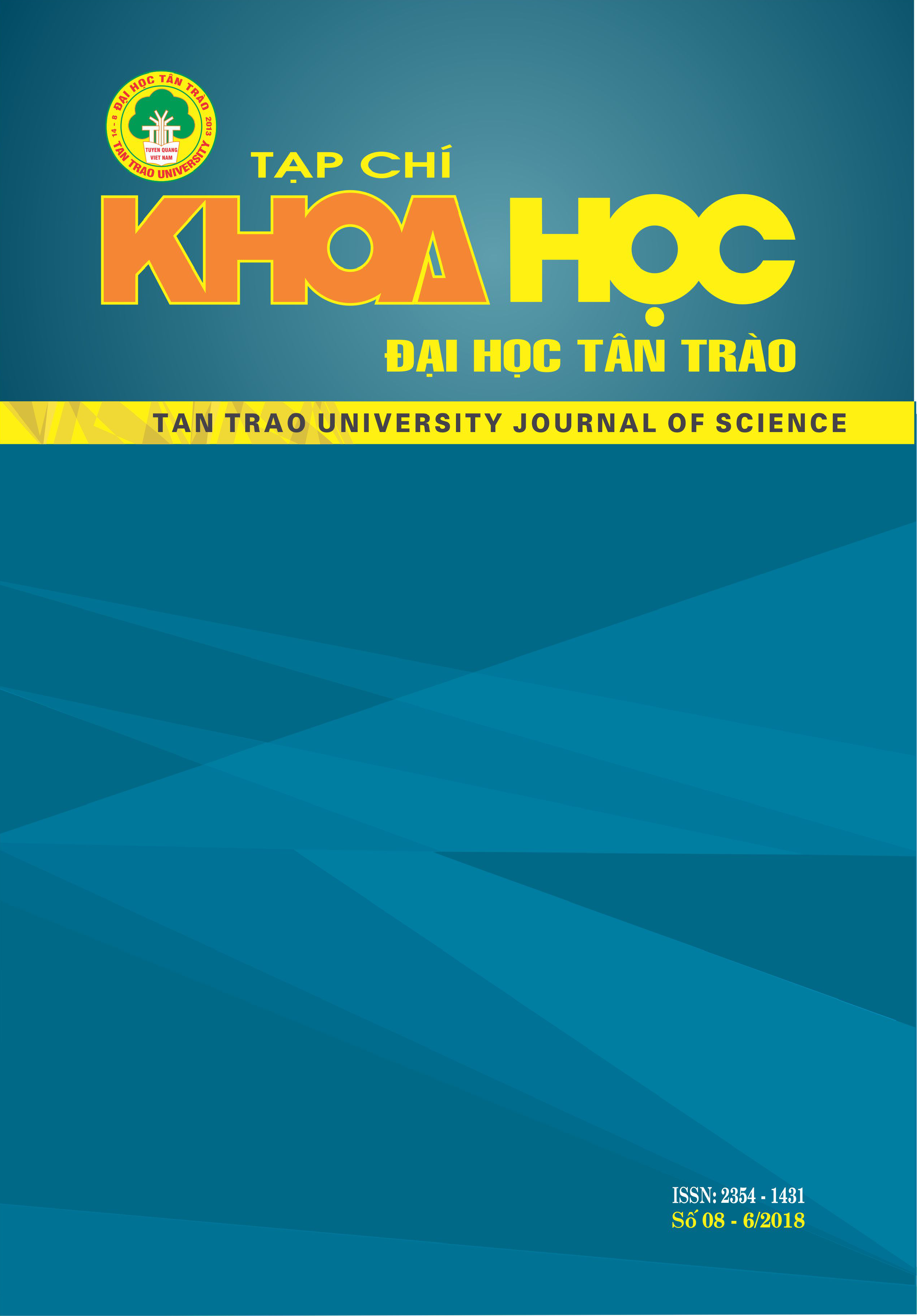Hoàng Hoa Thám và những truyện kể dân gian
DOI:
https://doi.org/10.51453/2354-1431/2018/202Từ khóa:
Hoà ng Hoa Thám, truyện kể dân gian.Tóm tắt
Hoàng Hoa Thám là một nhân vật lịch sử xuất hiện trong giai đoạn dân tộc Việt Nam đối đầu với thực dân Pháp khi thời kỳ bình định quân sự sắp đi vào kết thúc. Đây là một hiện tượng đặc biệt, bởi Hoàng Hoa Thám đã lập tức là mối quan tâm chung của cả hai phía đối lập nhau về quyền lợi dân tộc; Những quan tâm đó được thể hiện thành các ghi chép, thành những thông tin truyền khẩu suốt từ thời điểm ông tại thế và kéo dài cho đến ngày nay, ở cả ba phạm vi: lịch sử, folklore và văn chương. Trong bài viết, chúng tôi đã lựa chọn vấn đề Hoàng Hoa Thám và những truyện kể dân gian để tìm hiểu nội dung : hình ảnh vị thủ lĩnh được lưu truyền và phản ánh trong những truyền ngôn của hai phía Pháp và Việt. Những cách thức và phương thức nghệ thuật mà tác giả dân gian sử dụng cũng như câu chuyện về tinh thần dân tộc được chúng tôi bàn đến trong quá trình phân tích những truyện kể dân gian về Đề Thám
Tải xuống
Tài liệu tham khảo
1. Trần Thị An (2014), Đặc trưng thể loại và việc văn bản hóa truyền thuyết dân gian, Nxb Khoa học Xã hội, Hà Nội;
2. Phan Bội Châu (1917), Chân tướng quân (Chương Thâu dịch, Trần Hải Yến giới thiệu và tuyển chọn trong Phan Bội Châu tác phẩm chọn lọc), Nxb Giáo dục Việt Nam ;
3. Lê Bá Hán, Trần Đình Sử, Nguyễn Khắc Phi (đồng chủ biên, in lần thứ 3, 2004), Từ điển thuật ngữ văn học, Nxb Giáo dục, Hà Nội ;
4. Nguyễn Văn Kiệm (1985), Phong trào nông dân Yên Thế chống thực dân Pháp xâm lược, Nxb Giáo dục, Hà Nội ;
5. Đinh Xuân Lâm, Nguyễn Văn Sự, Trần Hồng Việt (1958), Hoàng Hoa Thám và phong trào nông dân Yên Thế, Nxb Văn hóa, Hà Nội ;
6. Tôn Quang Phiệt (1984), Tìm hiểu vể Hoàng Hoa Thám (qua một số tài liệu và truyền thuyết), Sở Văn hóa Thông tin Hà Bắc;
7. Nguyễn Thị Tâm (2004), Hình tượng Hoàng Hoa Thám và nghĩa quân trong văn học dân gian và lễ hội tưởng niệm ở vùng Yên Thế - Bắc Giang, Khóa luận tốt nghiệp, Trường Đại học Sư phạm Hà Nội;
8. Khổng Đức Thiêm (biên soạn, 2014), Hoàng Hoa Thám (1836-1913), Nxb Tri thức, Hà Nội;
9. Ngô Tất Tố - L.T.S (1935), Lịch sử quân Đề-Thám Yên-Thế (truyện lịch sử), Nhà in Nhật Nam, Hà Nội;
10. Vũ Anh Tuấn (2012), Giáo trình văn học dân gian, Nxb Giáo dục Việt Nam, Hà Nội;
11. Anh Vũ, Nguyễn Xuân Cần (1993), Một vùng Yên Thế, Sở Văn hoá Thông tin và Thể thao Hà Bắc;
12. Hải Vy (sưu tầm, biên soạn, có minh họa, 2010), Kể chuyện Hoàng Hoa Thám, Nxb Lao động, Hà Nội.
Tải xuống
Đã Xuất bản
Cách trích dẫn
Số
Chuyên mục
Giấy phép

Tác phẩm này được cấp phép theo Giấy phép Quốc tế Creative Commons Attribution-ShareAlike 4.0 .
Bài báo được xuất bản ở Tạp chí Khoa học Đại học Tân Trào được cấp phép theo giấy phép Ghi công - Chia sẻ tương tự 4.0 Quốc tế (CC BY-SA). Theo đó, các tác giả khác có thể sao chép, chuyển đổi hay phân phối lại các bài báo này với mục đích hợp pháp trên mọi phương tiện, với điều kiện họ trích dẫn tác giả, Tạp chí Khoa học Đại học Tân Trào và đường link đến bản quyền; nêu rõ các thay đổi đã thực hiện và các nghiên cứu đăng lại được tiến hành theo cùng một bản quyền.
Bản quyền bài báo thuộc về các tác giả, không hạn chế số lượng. Tạp chí Khoa học Tân Trào được cấp giấy phép không độc quyền để xuất bản bài báo với tư cách nhà xuất bản nguồn, kèm theo quyền thương mại để in các bài báo cung cấp cho các thư viện và cá nhân.
Mặc dù các điều khoản của giấy phép CC BY-SA không dành cho các tác giả (với tư cách là người giữ bản quyền của bài báo, họ không bị hạn chế về quyền hạn), khi gửi bài tới Tạp chí Khoa học Đại học Tân Trào, tác giả cần đáp ứng quyền của độc giả, và cần cấp quyền cho bên thứ 3 sử dụng bài báo của họ trong phạm vi của giấy phép.






